
Dog hiccups are cute to watch—that little high-pitched squeak sounds just like our hiccups and reminds us of how similar we can be to our pets. However, there may be times when those hiccups worry you, such as in cases where they don’t go away quickly or when your dog seems distressed. Learn what causes hiccups in dogs, how to get rid of dog hiccups, and when to contact your veterinarian.
Hiccups are caused by a contraction of the muscles used in breathing, specifically the diaphragm and intercostal muscles, which sit between the ribs. When these muscles contract suddenly, air is pulled into the lungs and the vocal cords close, causing the sound we call a hiccup.
Dog hiccups are spontaneous and usually resolve on their own within a few minutes. They may occur for many reasons, but often they're related to factors that expand the stomach or abdomen.
Less commonly, hiccups may occur due to conditions that irritate or damage the regions of the brain or nerves responsible for contractions of the diaphragm and other related muscles. Examples of this include injuries or tumors in the brain or brainstem, injuries to the spinal cord (especially in the region of the neck), and damage to the nerves that stimulate the diaphragm and intercostal muscles.
One possible but unusual cause is the virus distemper encephalitis, which can cause myoclonus (involuntary spontaneous muscle contractions or spasms). Distemper is one of the viruses dogs are commonly vaccinated against in their core vaccine series.
Dog hiccups often resolve quickly and are not typically a cause for concern. Most of us have probably heard some funny remedies for hiccups over the years, but these are largely unproven and unlikely to be effective.
If your dog is breathing heavily or panting hard, try to calm their breathing by helping them relax. You can also offer small amounts of water and encourage your dog to drink slowly. Monitor your dog for any signs of illness.
Do not attempt to stop hiccups by scaring your dog, blocking their breathing, or pulling on their tongue. Methods like this can hurt your dog and may even lead a dog to bite.
Contact your vet about your dog's hiccups if the following situations occur:
Treatment will vary depending on your vet’s findings and diagnosis. Since hiccups could be a symptom of another underlying problem, the treatment will be aimed at resolving the primary problem. Additional diagnostic tests such as chest X-rays, abdominal ultrasound, and bloodwork may be part of the work-up your vet recommends.
If the vet thinks the hiccups are caused by irritation of the esophagus or stomach, medication can often be prescribed to help resolve this. If medication is unsuccessful, endoscopy may be recommended to take a closer look at the walls of the esophagus and stomach. Evaluation by a veterinary neurologist may be considered if your dog has neurological symptoms. Other conditions may also be treated with medications. In rare cases, surgery may be necessary.
Since hiccups can be a normal occurrence in many cases, there is usually nothing that needs to be done to prevent them. However, pet parents can take some steps to prevent dog hiccups:
For dogs that seem to get hiccups often, especially after eating or drinking, it may be a good idea to use some techniques to slow them down. There are special bowls and treat dispensers that make your dog work a little harder for their food. This keeps them from scarfing down all their food too quickly. Water can be offered in smaller quantities or with an automatic dispenser to prevent your dog from drinking too much too quickly.
Some of the more unusual causes of hiccups are difficult to prevent since they are caused by spontaneous disease. Keep your dog healthy by providing proper nutrition, exercise, annual veterinary exams, and routine vaccinations to prevent serious illnesses such as distemper encephalitis.
In breeds that may be at risk for neck and back injuries, such as the beagle, dachshund, shih tzu, Pekingese, Yorkie, and Chihuahua, make sure to take precautions to prevent injury. This includes using a harness instead of a neck lead to prevent pulling on their necks, and to train them not to jump on and off the furniture to prevent those high-impact landings.
Luckily for most dogs, hiccups are just a fleeting nuisance and tend to go away quickly. You may even want to record a quick video of those cute little squeaks before they’re gone for good.

10 Obscure, Little-known Canine Facts in Honor of National Dog Day
With National Dog Day upon us, it's time to celebrate everything about our favorite pets—even the weirder stuff. Here are 10 obscure facts about dogs you probably didn't know.
Exploring the Different Types of Pet-Friendly Beaches
Are you looking for pet-friendly beaches? Learn about the different types of pet-friendly beaches, their locations, and tips for visiting them with your pet.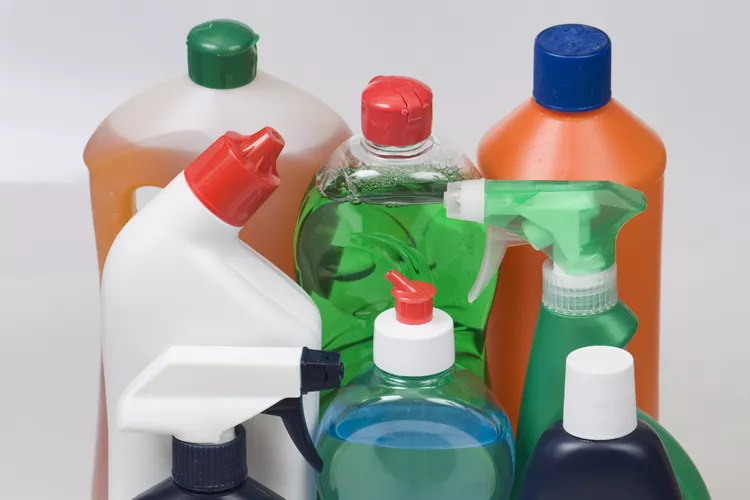
Toxic Chemicals & Household Items That Can Poison Dogs
There are many things in and around your home that can endanger your dog. Learn which chemicals and household items can poisin your dog.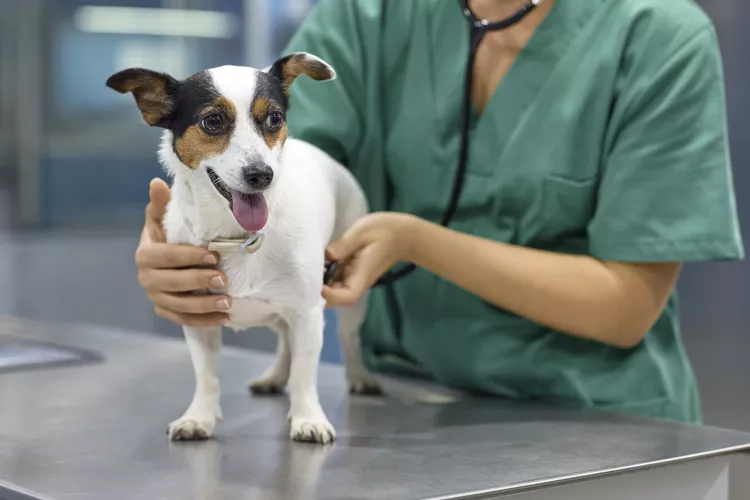
Bronchitis in Dogs
Is your dog coughing and feeling unwell? It could be due to respiratory inflammation called bronchitis. Learn the causes, treatment, and prevention.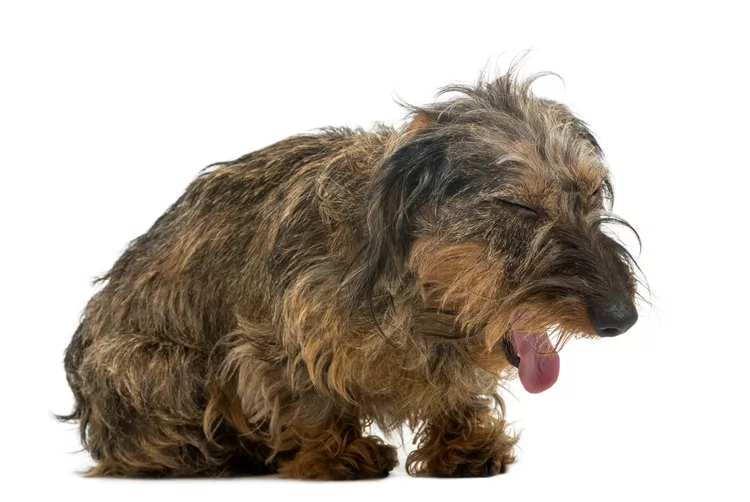
Choking in Dogs
A dog can occasionally swallow something incorrectly and start choking. Find out how you can tell if your dog is choking and what you can do about it.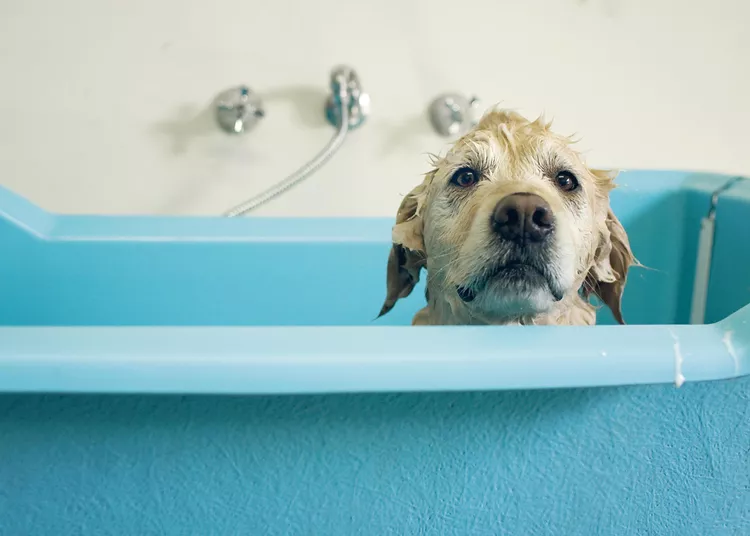
Why Does My Dog Smell So Bad?
Does your dog smell? Find out what could be causing these unpleasant odors and if it's something that needs more than just a bath to fix.
Is Rosemary Safe for Dogs?
Rosemary is used both for cooking and as a supplement with many reported health benefits in people, so you may be wondering if it is safe to give to your dog. Rosemary is considered non-toxic for dogs but with some caveats.
Can Dogs Eat Blueberries?
Dogs can safely eat blueberries. Blueberries are packed with nutrients and can be a great addition to your dog's diet when fed in moderation. Learn more about the benefits, risks, how to incorporate blueberries into their diet, and other fruits dogs can eat.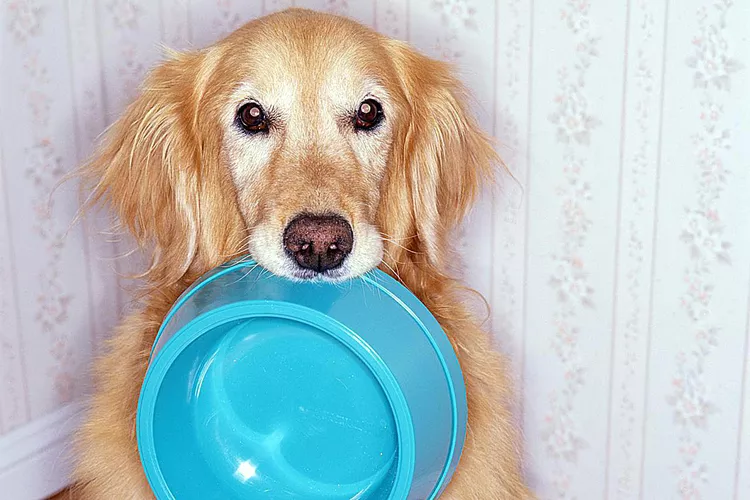
Dog Food Basics
Are you feeding your dog the best way possible? Check out these dog feeding tips to keep your dog healthy and happy.
Swedish Vallhund: Dog Breed Characteristics & Care
The Swedish vallhund makes for a high-energy and affectionate companion. Learn about the breed's history, health, exercise needs, and more.
Becoming a Show Dog: Getting Started
Do you have the perfect puppy? Have you considered showing her in a dog show? There's much more to showing than showing up! Here's how to get started.
How to Care for a Hairless Cat
Hairless cats make great pets but they aren't without their own challenges and requirements. Read on to learn how to best care for your furless feline.
British Shorthair: Breed Profile, Characteristics & Care
The British Shorthair is a calm, affectionate cat that looks and feels like a plush teddy bear. Here's what you need to know about this popular breed, including appearance, temperament, health, and care.
Tonkinese: Cat Breed Profile, Characteristics & Care
The Tonkinese cat is a perfect mix of the Siamese and Burmese—smart, sociable, and sweet. Learn about the Tonkinese breed.
How to Stop Your Cat From Chewing Electrical Cords
Cats are known to pounce and attack inanimate objects, like electrical cords. Learn how to prevent your cat from ambushing objects that may harm it.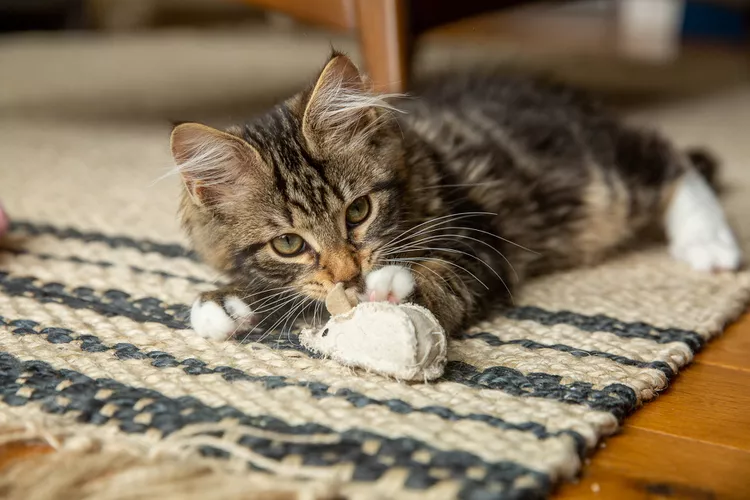
How to Stop Aggression in Kittens
Kittens may show aggressive behavior for several reasons. Sometimes their play gets too aggressive while other times the kitten is afraid or upset. Learn how to spot and curb aggression in kittens.
46 Egyptian Cat Names
Whether inspired by notable Egyptian deities, locales, or pharaohs, Egyptian cat names can bring out the divinity of your noble feline companion.
How to Tell If a Kitten is a Boy or a Girl
If you're wondering whether your new kitten is a boy or a girl, here are three ways to help determine the sex of your cat.
Signs Your Cat Is Aging and When to See the Vet
Expect some changes when your cat ages. Learn to differentiate between normal and potential medical problems for your elderly cat.
Coronavirus in Cats
Feline coronavirus (FCoV) rarely harms cats but can lead to another life-threatening illness. Learn the causes, treatment, and prevention.